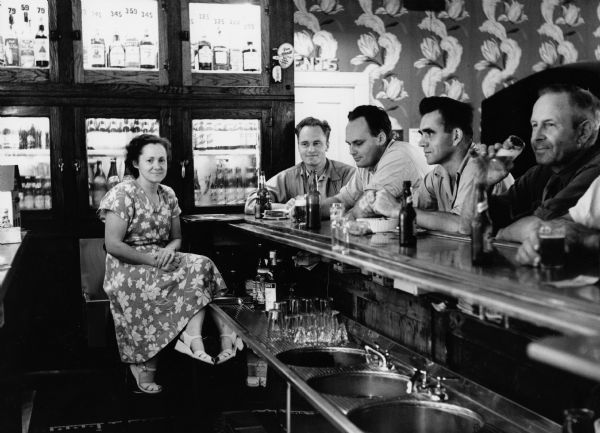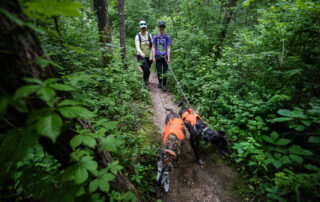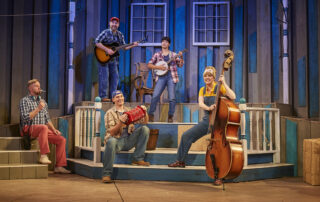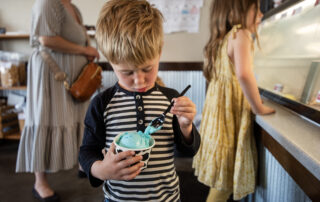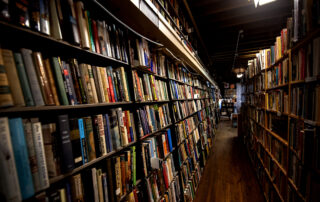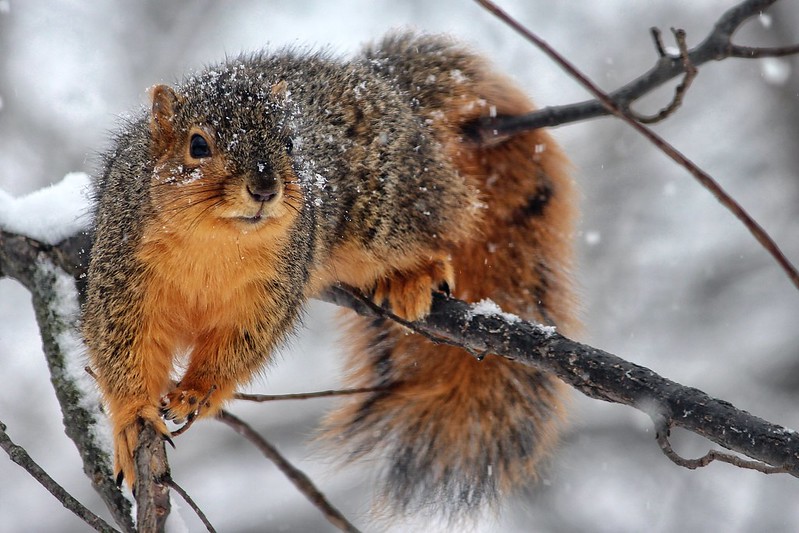Wisconsin has one of the highest concentrations of bartenders in the country, employing more than 24,000 bartenders. A good percentage of them are women. But as writer Patti See tells us, that hasn’t always been the case.
==
Women Behind the Bar
Few of us bar lovers realize it took until 1970 for women to legally tend bar in many major US cities. The only exception was if they were the wives or daughters of male owners.
These women paved the way for many people, like Lisa Schuetz. Since 2018, Lisa has been sole proprietor of Schuetzy’s in rural Chippewa Falls. Her 25-stool, horseshoe-shaped bar means you have to look at the other patrons across from you. Lisa affectionately calls this her “dysfunctional dinner table.” No private conversations and everyone talks at once.
She honors her building’s rich history by displaying many black and white photos. In 1936, Helen and Martin Christianson opened their filling station here. From 1947 to 2000, the place was Lawler’s Bar. Then for the next nearly 20 years it was Charlie’s, where Lisa bartended.
She tells me she’s living her childhood dream by owning a bar.
**
Over four centuries ago, British pubs were often run by women. In the New World, Puritan-influenced “blue laws” were enacted to protect ladies from taverns full of drunken men fighting with swords and guns not to mention their vulgar language, gambling, and over-flowing spittoons. Still, one New England proprietor employed a female barkeep to demand that in her presence there would be “no ruffianism” in his pub.
History professor Madelon Powers, author of “Faces Along the Bar: Lore and Order in the Workingman’s Saloon, 1870-1920,” claimed that drinking establishments offered alternative entrances for Victorian-era women so they didn’t have to pass through the front barroom which was still “undisputed male territory.” In later eras, saloons filled with women often meant money was made the old-fashioned way. I’m not talking about Wisconsin’s favorite mixed drink.
In many cities, owners were fined for hiring women. Fritz Adolphy, a St. Louis beer garden owner, adopted 90 of his barmaids. Once they were part of his family, they could continue working for him. Despite law and taboo, the German family tavern fostered a shift away from male-only bars, especially in Wisconsin.
Post WWI, there were over 7,000 female doctors in America and only 147 female bartenders. Then for thirteen years, Prohibition sent drinking underground where speakeasies and juke joints offered a place for men and women to gather.
**
After WWII, registered nurse Joyce Connolly and her Navy pilot husband, Hank, planned to open a grocery store in western Wisconsin. Instead, in 1950, the couple bought a building and transformed it into Glen Loch Bar on Chippewa Falls’ northside. Joyce was seven months pregnant, and the couple had 3 and 5-year-old daughters. They installed a furnace and running water and created an adjacent living space. Hank did the heavy lifting in the bar — replacing kegs from the icehouse down the road.
“I was behind the bar all the time,” said Joyce. She put their kids to bed before the nightly rush.
This “beer bar” catered to 18 to 20-year-olds. Sometimes parents came in to check out the spot kids flocked to for Leinenkugel’s, hot beefs and French fries — the entire menu.
“Our customers were wonderful,” Joyce said.
She is 98 now and continues to live in Chippewa Falls. Hank died in 2006.
She still recalls the one night they forgot to lock up. They awakened to songs from their jukebox.
“One of our steady customers was pulling the tap for beer and ringing up the cash register,” remembered Joyce. “He told Hank, ‘We knew you’d be along soon.'”
**
When I was a kid in the late 1970s, my family frequented our neighborhood tavern below “Holy Ghost Hill” in Chippewa Falls. Frances “Tootie” Wilson bought the Plunkett Inn and changed its name to Tootie’s.
She was a fixture there.
Another bar owner Baldy Gaier, co-owner of Baldy and Mary’s Bar, once challenged Tootie to a wrestling match in a kiddy pool filled with pudding. I hope photos of that event still exist somewhere.
**
Sunday afternoons, my dad often drove our family 60 minutes to Jump River Rose’s Deer Farm and Supper Club, where Rosie Wawrzyniak let customers pet her tamed fawn inside her tavern.
One patron remembered Rosie as “a lady who could smoke a cigar, tend a bar, milk cows, go out logging or hunting, and then listen to your troubles over a beer.” She’d also spent time as a bull rider and stockcar driver and later ran for Rusk County sheriff.
Paramount Pictures paid Rosie an advance for a film based on her life. She was the subject of at least one poem, “The Legend of Jump River Rosie.”
When she died in 2016, her obituary captured Rosie’s personality, including one detail that no doubt served her well: “She rarely forgot a name.”
**
Because of people like Joyce, Tootie, Rosie — and many others — women today make up 61% of all bartenders in the U.S., though they still don’t purchase bars as often as men.
Back in the 1950s, Glen Loch co-owner Joyce Connolly often fretted when patrons nicknamed her tavern “Hank’s.” She recently joked, “All the work I did, and they never called it Joyce’s.”
==
MUSIC: “Vivaldi Concerto Grosso in G Minor” by Tafelmusik
“C’est Si Bon” by Eartha Kitt
“Hot Stuff” by Donna Summer
“She Works Hard for the Money” by Donna Summer
